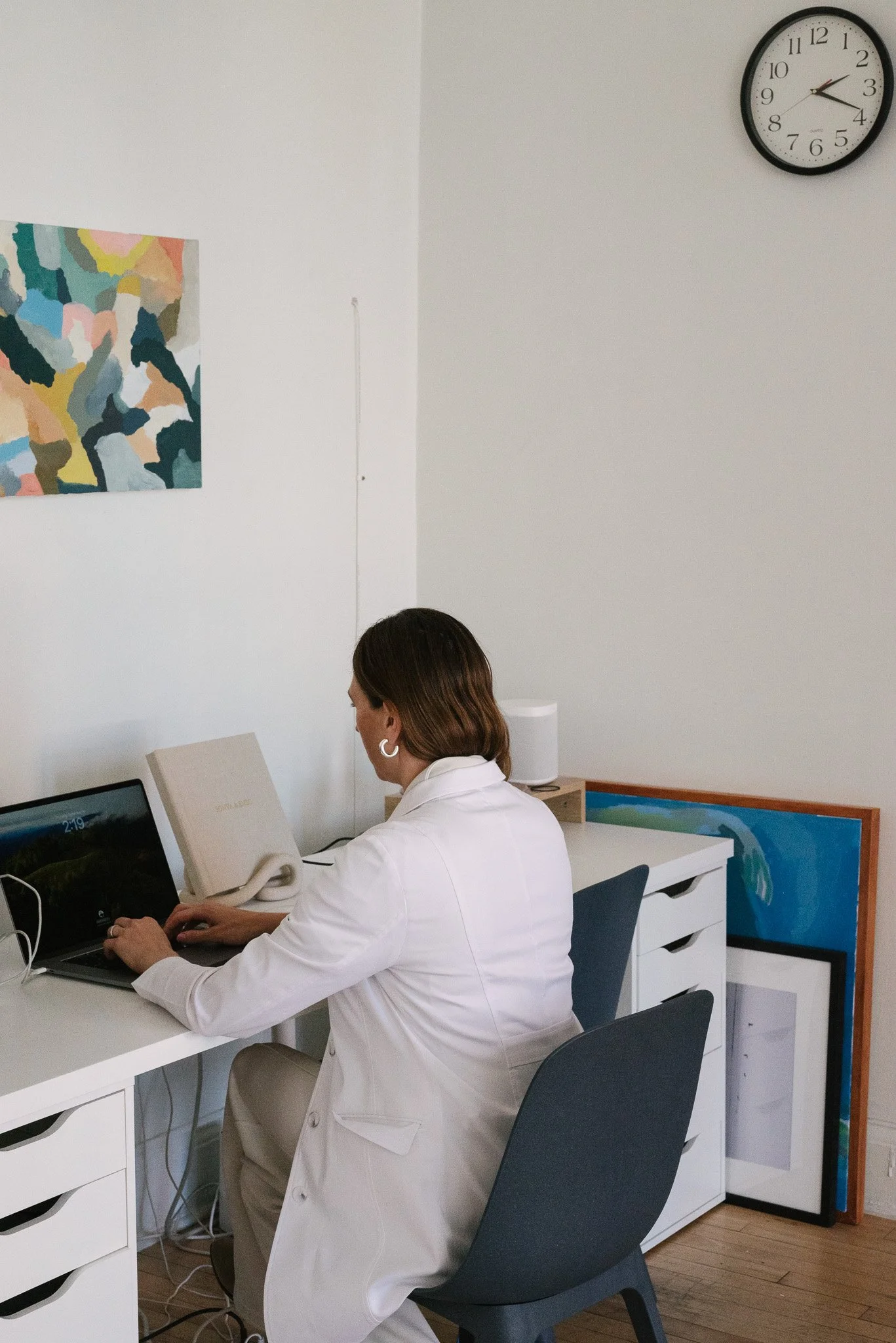Notice your current story without trying to change it
Stories are thoughts, and thoughts are sentences in your mind. Thoughts in your mind create feelings in your body. What story are you telling yourself? “Gotta get a win today” “Please let the day go smoothly”, “I have to be done by 3 pm”, “I hope this dissection goes smoothly”, “Please don’t let me get that CRNA”. Notice your stories without trying to change them. This exercise strengthens observation, acceptance and allowance.
Consider what thoughts you’ll need to think to generate useful emotions
How can you generate useful emotions like confidence, curiosity, ease, non-resistance, and service? See if you can shift your thoughts to ones that serve you and your patients. I like to think, “It’s not about me; it never was, and it never will be” to get myself into service when I’m spinning in anxiety or ego-based thinking. Or I ask my brain “What’s fun about this?” or “What’s working?” or “How can I make this simple and easy?” If you direct your brain and put it to work FOR you (instead of letting it run on autopilot) it makes your life a milllion times easier.
Implement a little ritual
A ritual is inspired, intentional action you take before every case, such as visualizing the entire case at the scrub sink, giving yourself a wink and a smile in the mirror and saying to yourself “you got this”. Data has shown that rituals reduce anxiety and increase our sense of control. Maybe it’s scheduling 10 min to do a meditation in your car. Be consistent with it. But be careful that your ritual doesn’t become a compulsion. If you become dependent on the ritual, you start using it against yourself.
BONUS:
Before you book your next case, check in with your belief triad
Your belief triad includes your belief in yourself as a surgeon, your belief in the surgery, and your belief in the patient.
Belief in self: How confident are you in doing this procedure? Is it something you’ve done so often, you could do it in your sleep, or are you pushing the limits of your comfort zone?
Belief in surgery: On a scale of 10, how confident are you (not your mentors) that the surgery will help resolve the patient’s problem? Do you have all the support you need to execute the way you want to?
Belief in patient: What is your rapport? How well do they understand what’s happening to their body? Do you feel
3 STEPS TO get into the right midset on your or days
Find a Printable PDF below.
Would you like more support?
Schedule a call with me HERE.
Sign up for The Newsletter.
Listen to the weekly Podcast.
